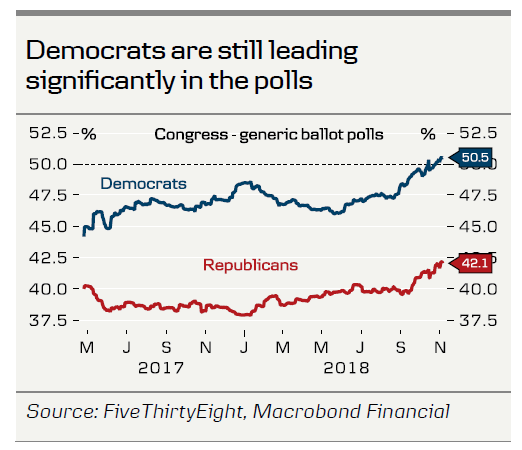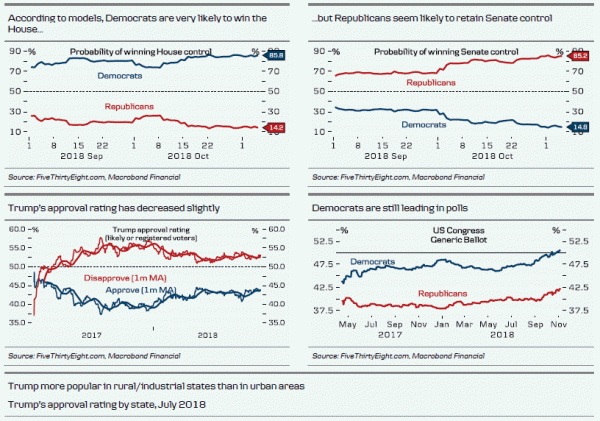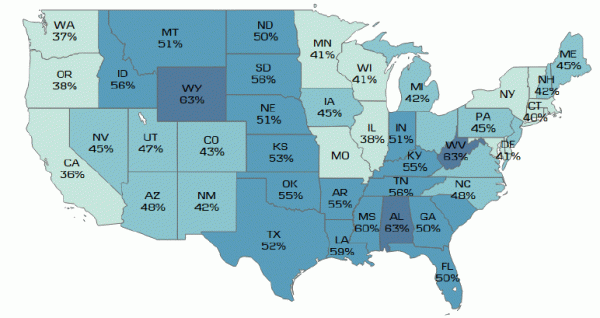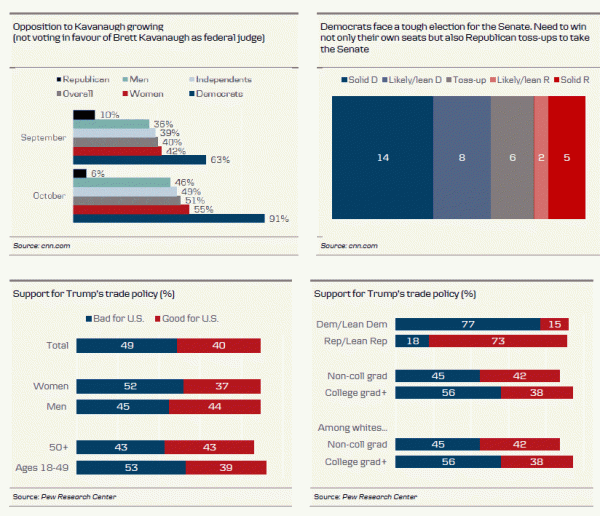Today the US is voting in the mid-term elections and we should get the results in the early hours of Wednesday (CET).
Opinion polls continue to look favourable for the Democrats, as they are leading by more than eight percentage points. Still, FiveThirtyEight models indicate a divided Congress as there is nearly an 86% probability that Democrats win the majority in the House. In the Senate, things looks less promising for the Democrats as there is an 85% probability of Republicans retaking the Senate. Trump’s approval rating continues in the range 40-45% but a majority still disapproves of him (although the share has declined compared to late 2017).
Last week, Trump signalled he may be ready for a trade war ceasefire at the Xi-Trump meeting on 1 December. According to US sources, Trump has instructed his trade officials to start drafting potential terms for an agreement. While markets welcomed the news, as it may reduce the probability of a prolonged and worsening trade war, the question is whether this was just rhetoric to improve markets ahead of the mid-term elections. We see a 60% probability of a ceasefire but any real deal will take time to reach and is unlikely to be done until some point in 2019. There is also a high probability that the relationship worsens. In this regard, it is important to note that the Trump administration has shifted to a harsher stance against China, so it is no longer just about trade.
If the polls are right and US Congress is divided, it means Trump will be unable to push his domestic policy agenda through. On the other hand, it is very difficult for the Democrats to roll back Trump’s economic policy (even if they win both chambers), as Trump can veto the attempt. So, the most likely outcome is that there will be no changes to economic policy, which is why we think the mid-term elections should have limited implications for the markets and the economy.
In the case of a divided US Congress, Trump is likely to focus on foreign and trade policy, as the President has more power here without Congressional approval. US foreign policy will remain more hawkish than during Obama and Trump may continue to put pressure on trading partners. Remember, the Republican voters are in favour of the more protectionist stance.
In the less likely scenario that the Republicans retake both chambers, it would give Trump confidence to push even harder towards the America that he wants. If Republicans retake both chambers, they have another shot at passing new laws together with Trump, not least a tax reform 2.0. Trump has also hinted at this during the election campaign (although to the surprise of the leadership of the Republican Party)..




